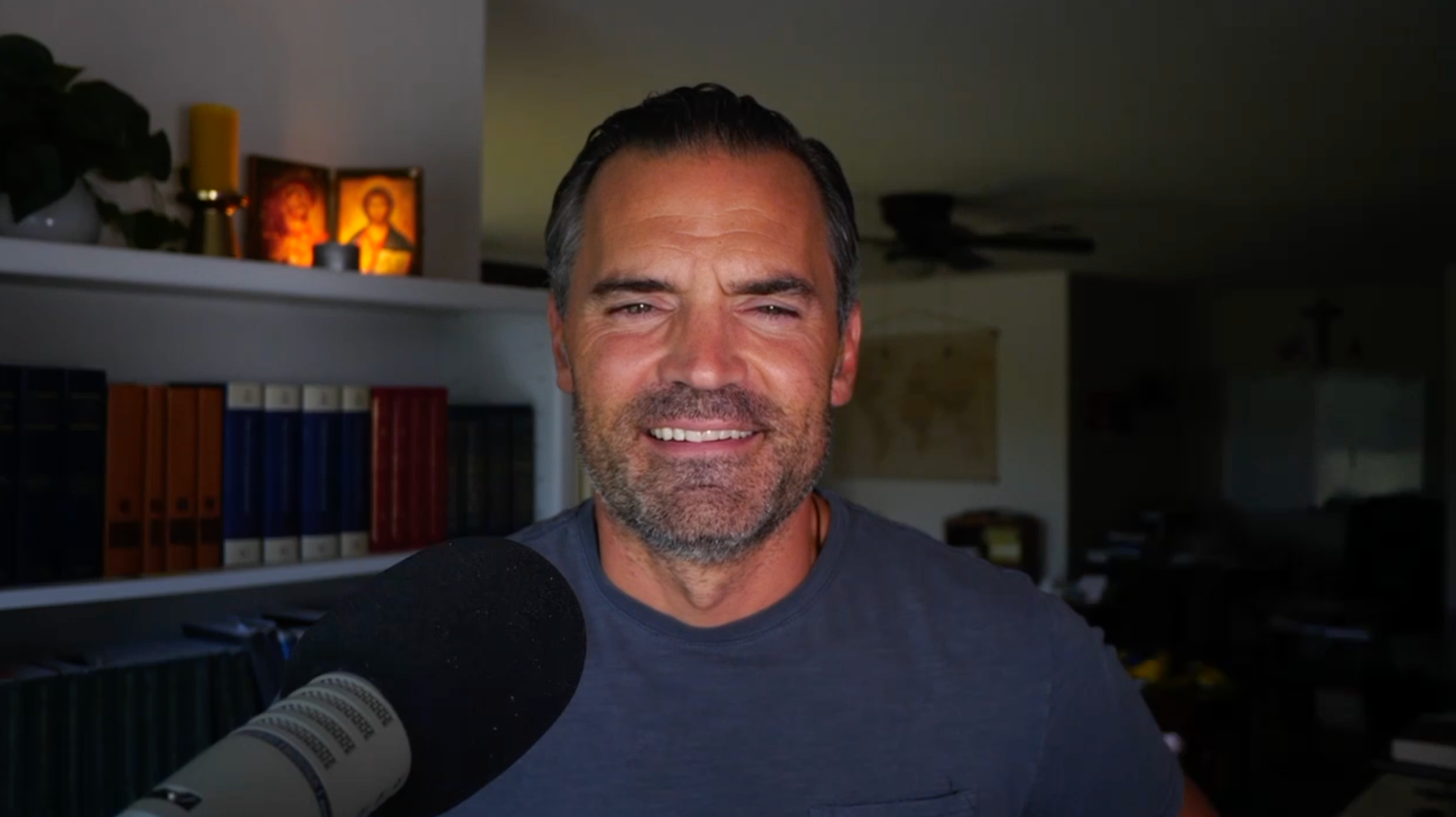What Can I Do If I Feel My Parents Didn't Love Me?
7-minute read.
To love and be loved: that’s what we were made for, right? And who better to teach us what that looks like than our parents?
Unfortunately, that’s not the case for everyone.
The hard truth is that parents are people too. And people are, well, human. And humans are liable to make mistakes—sometimes really big ones. (Just open the Bible to page one for Exhibit A.)
Even parents who give their absolute best to their children fall short—it’s part of that whole ‘human’ thing mentioned above. Whether it’s losing their temper or missing a dance recital, or working longer hours than necessary, disappointment is inevitable. Sometimes, the way our parents fall short isn’t just disappointing—it’s devastating.
What It Really Felt Like Thinking My Parents Didn't Love Me
Children from broken families are liable to suffer emotional neglect: a lack of love and attention from their parents.
Going through a divorce is time-consuming, heartbreaking, and completely life-changing. In the midst of it all, some parents may be so compromised that they drop the ball in one of the most important responsibilities of their lives: loving their children.
Furthermore, divorce can be accompanied by (or possibly caused by) things like mental illness, infidelity, and significant financial losses. All of this, too, can contribute to parents becoming consumed by their own suffering at the cost of the well-being of their children.
If this has been your experience, I want to first and foremost say: I’m so sorry. It seems almost unnecessary to say (but it isn’t): this is not okay, and it should not be this way.
Maybe you want to justify your parents’ behavior or find a way to make it okay. It can be extremely difficult to admit that our parents hurt us or that they messed up. But it happens. And bringing that to light doesn’t mean you have to vilify them or that the parent-child relationship is forever broken.
In fact, admitting your parents made a mistake is the first step to forgiveness and healing. You can overcome parental rejection, but not until you first admit that it happened.
This first step can be incredibly difficult. It means facing hurt, anger, grief, and loss that you possibly haven’t experienced or thought about in years. It’s heartbreaking and overwhelming.
You may also feel guilty blaming your parents—this is normal. When you love someone, it can feel easier to pretend they never hurt you and instead blame yourself rather than facing the painful reality that someone you care about so much hurt you so deeply.
The thought “my parents didn’t love me” is one of the most painful things a child can experience. If this is where you are, give yourself the grace to experience the loss and the pain that accompany this feeling. Consider journaling what you are experiencing or speaking to a trusted mentor about it. It may also help when you are feeling overwhelmed to go for a walk. You can find more strategies for handling difficult emotions in our book, It’s Not Your Fault.
The thought “my parents didn’t love me” and the experience of parental rejection can also affect your identity for years and years to come. We’ll talk about that next.
How a Broken Parent-Child Relationship Shapes Your Identity
Wounds that arise from those formative relationships (such as with our parents) can be some of the deepest and the most challenging to heal.
If you grew up believing, “My parents didn’t love me”, it likely played a role in shaping how you see yourself and how you see the world. The parent-child relationship is crucial to feeling loved and secure; therefore, when there is emotional neglect, significant damage takes place in our understanding of love, trust, and self-worth.
Here are some examples of what can happen if you feel unloved by your parents:
You see yourself as inherently unlovable and unworthy of love
You blame yourself for the neglect that you experienced because you think something is wrong with you
You think a successful romantic relationship is impossible for you
You don’t trust others, even those who say they care about you
You feel anxious in relationships, assuming the other person doesn’t truly love you and will leave
You avoid getting close to others because you fear they will realize something is wrong with you and will no longer want anything to do with you
You become a ‘chameleon’, presenting whatever you think others expect or want of you, so that you won’t face more rejection
You avoid taking risks, especially when rejection is a possibility
This list is not comprehensive. The effects of feeling unloved in a parent-child relationship are vast and long-lasting. They essentially shape the way we view ourselves and the world, especially in terms of relationships. It’s like walking on a broken leg that never healed properly; it affects every step you take and holds you back from operating the way you could.
If this sounds like you, don’t worry, overcoming parental rejection and its effects is possible. The first step is understanding what feeling loved actually means.
What Feeling Loved Actually Means When You Never Felt It
One of the biggest aspects of feeling loved is security. Feeling loved means you are not constantly guessing, wondering, or hoping that someone loves you, because you know that they do! Another essential element to feeling loved is feeling seen, in other words, feeling that the other person truly understands you.
Feeling loved means you are not afraid of conflict because you don’t think the relationship is a glass slipper; it can handle friction. Feeling loved means you don’t have a need to prove yourself as good or lovable. It also means that you don’t see every problem in the relationship as your fault.
These are some of the key parts to feeling loved. However, we know that love isn’t a feeling—it’s a choice! It can be easy for children of divorce to conflate warm and fuzzy feelings with love. This means that if warm and fuzzy feelings are absent, you may think that you don’t really love that person or that they don’t love you.
It’s important to recognize that feeling loved doesn’t mean you feel happy 24/7, that there are never any problems in the relationship, or that you never have doubts. Especially for children of divorce, doubts and anxiety can besiege us even in a healthy, loving relationship.
For more guidance on navigating relationships if you are from a broken family, listen to episode #136 of the Restored podcast.
Overcoming Parental Rejection by Finding Unshakable Love
So, how do you go from feeling unloved to feeling loved? How do you overcome parental rejection and all the fallout that comes from a dysfunctional parent-child relationship?
In order to find healing as a child of divorce and overcome thought patterns such as “my parents didn’t love me,” it is essential that you understand this unshakeable truth: you are loved.
You are loved by a love that is complete, unwavering, and unconditional. You are loved by the One who created you and who holds you in existence. You are loved so thoroughly that someone died a torturous death for you.
Understanding and experiencing God’s love can be difficult for children of divorce. Because our model of love is distorted, we often attribute the qualities of our relationship with our parents to our relationship with God.
Understanding and embracing God’s love for you will help reshape your identity as someone who is good and lovable. It will also help you overcome trust issues and see the world in a more positive light. If you struggle to feel God’s love, here are some places to start:
Read Scripture, specifically passages such as Psalm 139, Psalm 103, and the story of Christ’s death and resurrection. Read them slowly and more than once, giving yourself time to truly take in the meaning of what you are reading.
Pray the ‘I Thirst’ prayer by Mother Teresa. If you can pray this in front of the Blessed Sacrament, even better.
Go to Confession and experience the power of God’s mercy and forgiveness.
Meditate on the ways that God has loved you through others and provided for you over the years. Practice gratitude for the blessings you have received over the years, and look for God’s guiding hand in your life, even if you didn’t recognize it at the time.
Seeking a good spiritual director can be helpful to implement these ideas correctly.
This episode of the Restored podcast can help if you are feeling angry toward God, as often happens with children from broken families.
It may take time and repetition, but these strategies can help you to reshape your identity as a beloved child of God. Healing is possible and God wants nothing more than to have a meaningful relationship with you. If you take the first step, He will run the rest of the way.
Final Notes
Growing up feeling unloved by your parents and parental rejection can feel like insurmountable hardships—especially when it comes to experiencing love in our relationship with God and with others. The good news is that to love and be loved is what you were made for, regardless of the trauma you have in your past. Healing is within reach for everyone and the life and love you were meant for are yours for the taking.
Are you interested in sharing your story with Restored? If so, click the button above. Sharing your story can help you begin healing.
Be assured: Your privacy is very important to us. Your name and story will never be shared unless you give explicit permission.






In this episode, I’ll mentor three people LIVE through real-life situations that people like us from broken families face.